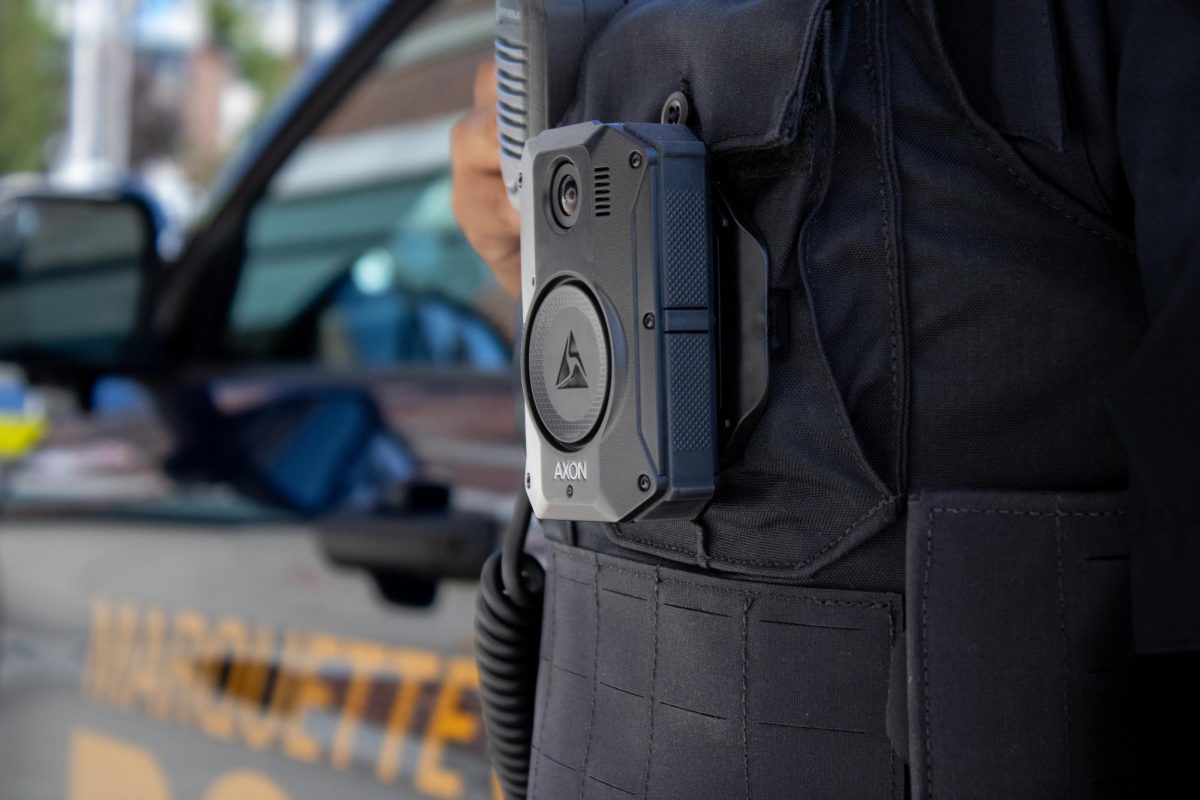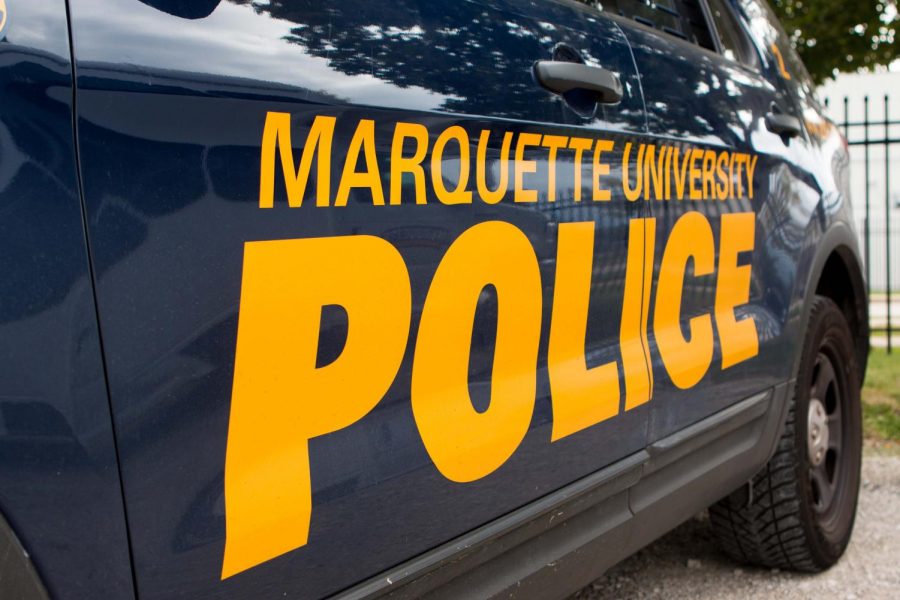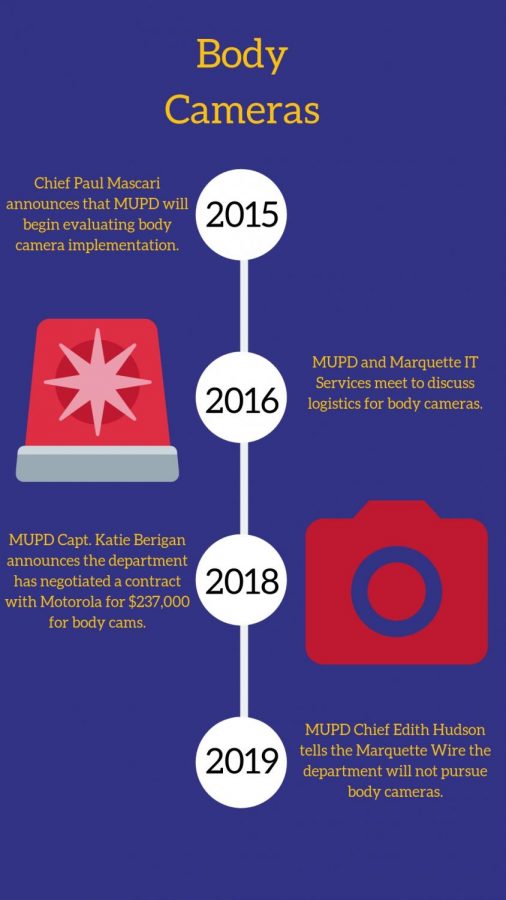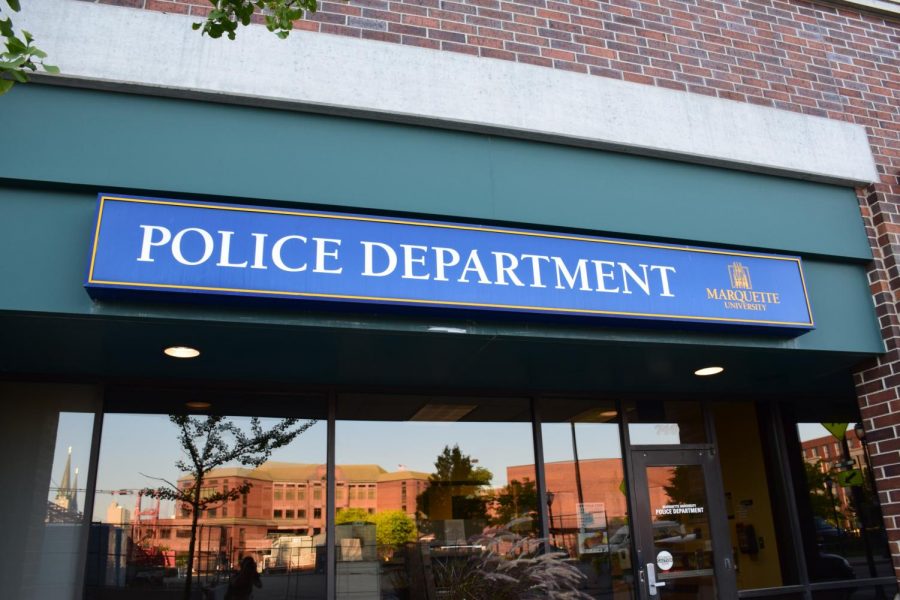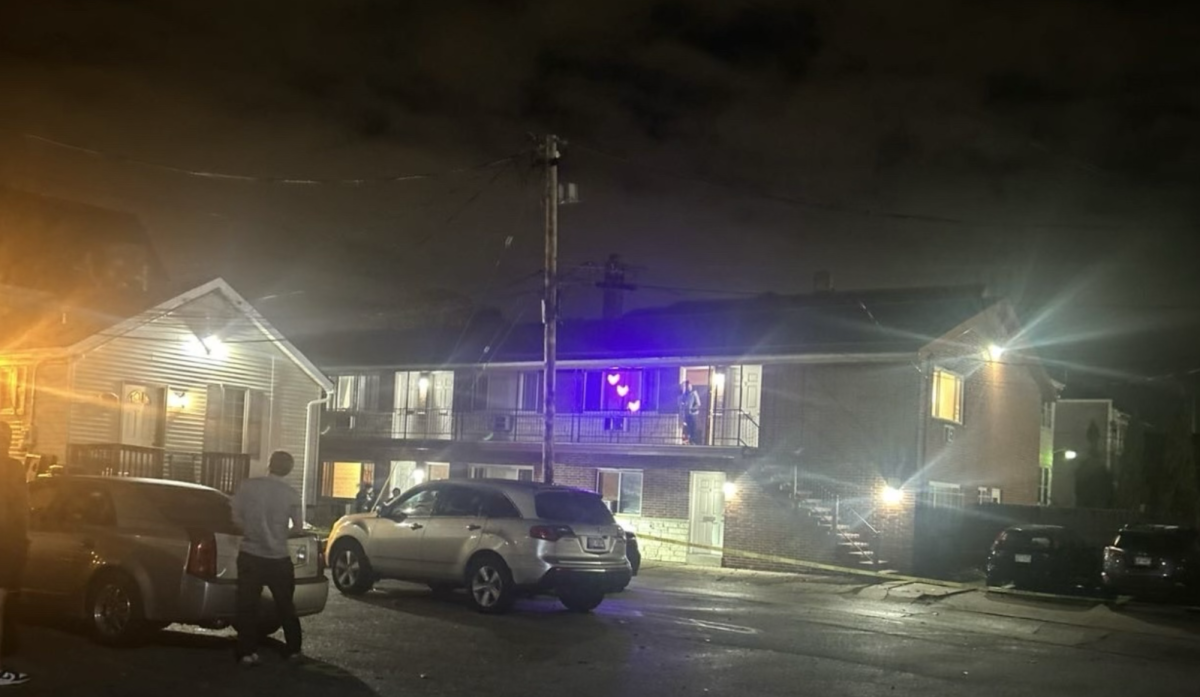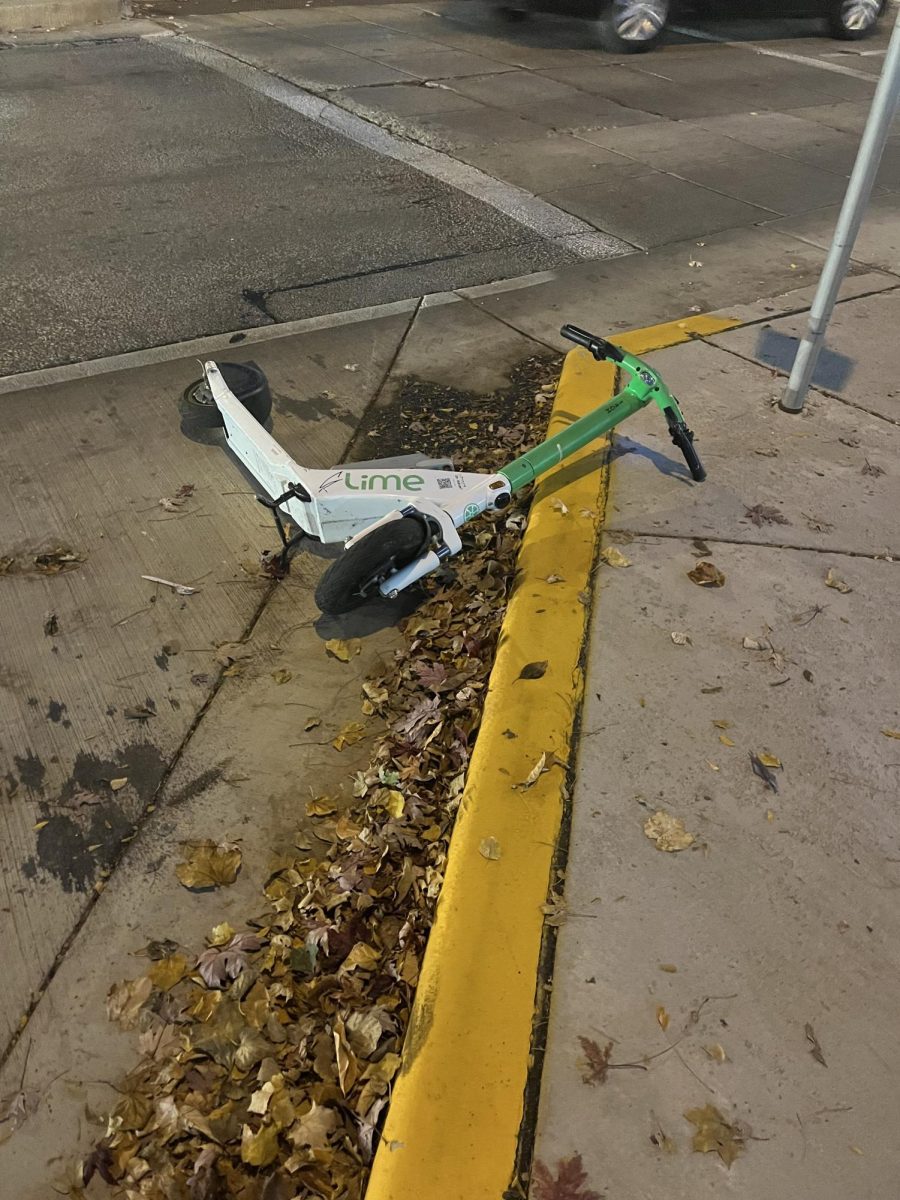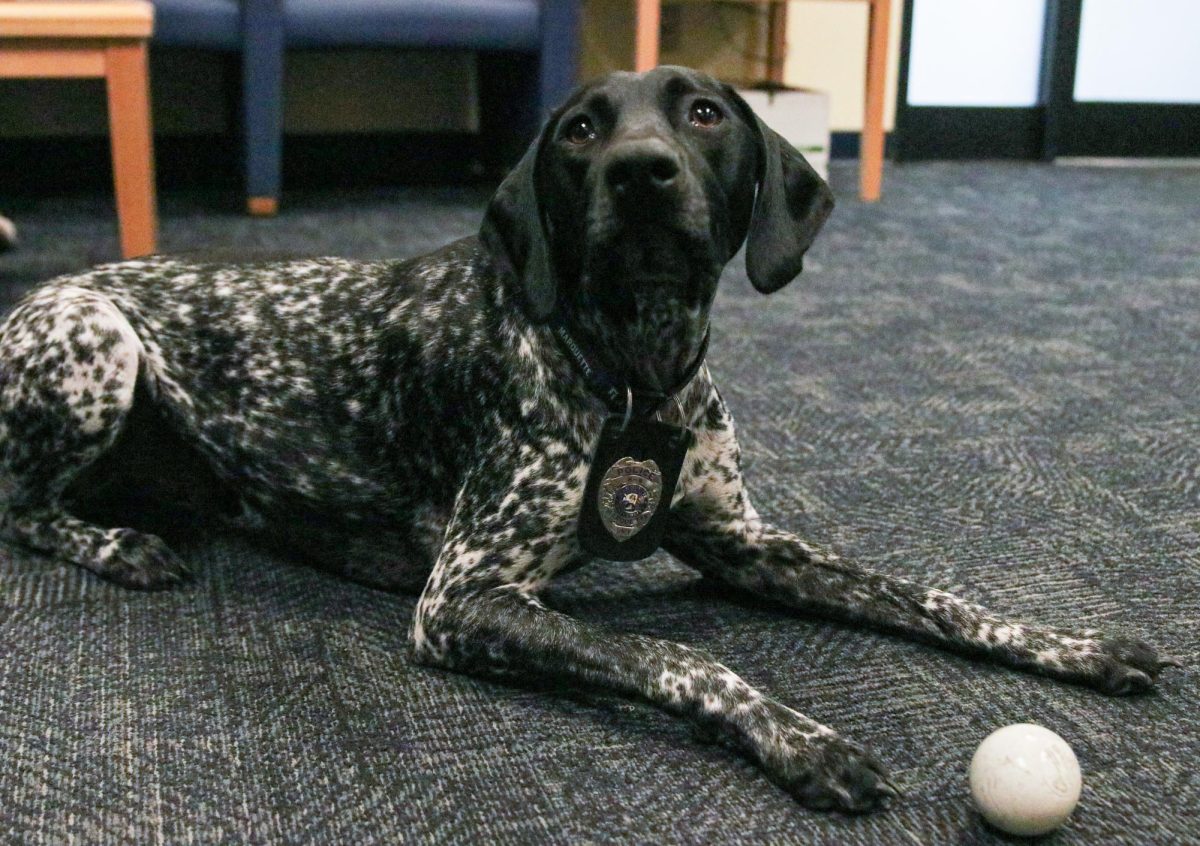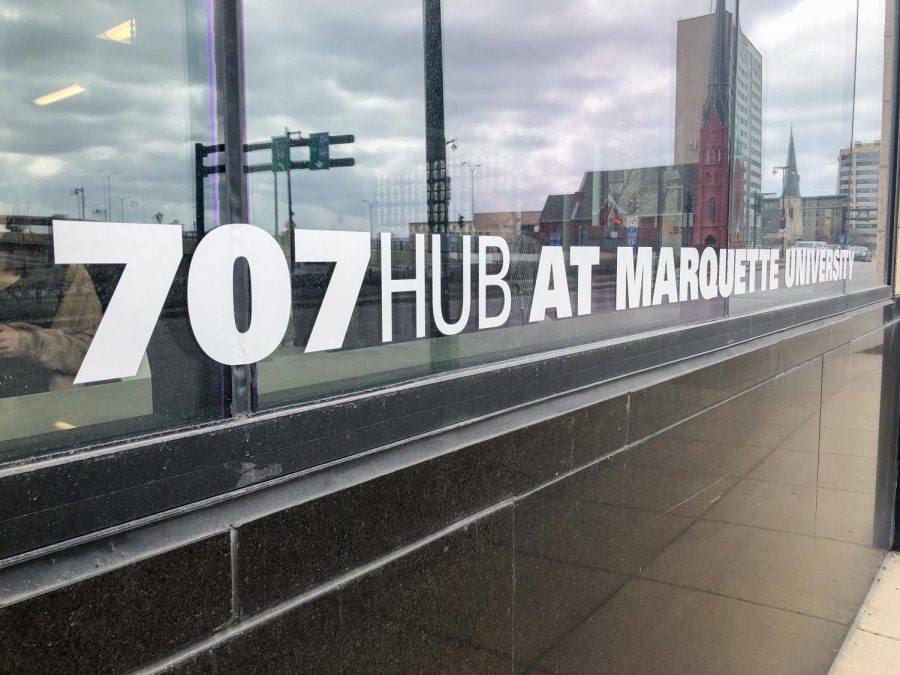Recently, Marquette University Police Department decided not to equip its officers with body cameras due to the cost of such devices, a decision which ultimately is harmful for both campus law enforcement as well as the student body. This is particularly true in the light of recent years, where there have been a number of incidents involving police officers utilizing excessive force in the apprehension of a suspect, and the relationship between law enforcement and the citizenry whom they monitor exists in a somewhat fragile state, as police officers are viewed with a noticeable degree of skepticism.
This skepticism proves problematic for both campus police and the student body as students may be hesitant to inform police regarding criminal matters, which in turn hampers MUPD’s ability to effectively assist and protect students. As a result, it is highly advisable that in order to combat distrust in police, campus law enforcement adopts an approach which ensures the continued proper conduct of its officers, a task which body cameras are specifically designed for.
For the unfamiliar, a body camera refers to a small video recording device that is normally attached to the chest of an officer. Essentially, the camera serves to visually and audibly record the actions and encounters of officers who are on duty. As a result, in the event that an officer is accused of acting in a manner that violates the law, the local police department can provide video evidence that gives greater context to the situation and ultimately help determine the guilt or innocence of the officer.
Without body cameras, it can be incredibly difficult to hold police, who have potentially acted unethically, accountable, as the prosecutor is often unable to provide concrete evidence that shows the officer in question undeniably acted in a manner that violates acceptable conduct. This is especially true in instances where officers use deadly force against a suspect, considering that the individual who was killed is unable to provide his or her perspective on the events which transpired, thereby eliminating the opportunity for a more thorough examination of the encounter. Ultimately, this degree of unaccountability has culminated in several occasions where officers accused of misconduct have not been brought to trial due to lack of evidence, which has caused discomfort among a number of communities throughout the United States.
However, in introducing body cameras to police, something the Milwaukee Police Department already implemented in 2016, there always exists a third party account of how events transpired between law enforcement and a suspect, which is beneficial for both parties. In regards to individuals who have been confronted by police, body cameras prove beneficial they make it less likely for an officer to act unethically, considering their actions would be caught on camera, according to the National Institute of Justice. Additionally, in the event that a law enforcement official does violate the law while confronting a suspect, the video evidence gathered by the camera makes it more likely that the officer is to be requisitely punished for his or her actions.
In the case of law enforcement, having body cameras allows police to showcase their actions in tense situations, and in the event that they acted lawfully, the footage captured allows an officer to more quickly exonerate him or herself if he or she is accused of misconduct, potentially saving departments from costly legal proceedings.
Additionally, body cameras benefit police as the images captured by the device can be used as evidence in the court of law, giving departments an added ability to provide prosecutors with information to pursue charges against a suspect apart from pure eyewitness testimony. Finally, and arguably most importantly, body cameras serve to ensure the accountability of officers in the eyes of the public, allowing for there to be a more cohesive relationship between law enforcement and the individuals whom they are meant to protect and serve.
However, to be fair to MUPD’s decision, it is worth noting that these cameras are exceedingly expensive, commonly costing between $400 and $1,000 per unit, in addition to the cost of storing the data on them, which was reported by Government Technology to be approximately $100 per month for each camera. Based on MUPD’s website, which states that it has 80 sworn officers, body cameras would prove to be excessively expensive for the small department, potentially diverting MUPD funds from other essential functions or community initiatives.
Nevertheless, while body cameras may be a large cost for the MUPD, the potential benefits which these cameras offer to both campus law enforcement and the student body is immense and should be more thoroughly considered by MUPD in the future.



